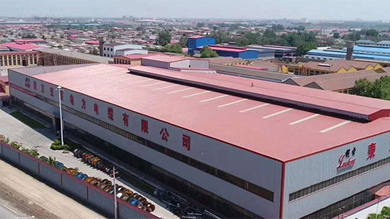10 月 . 19, 2024 12:17 Back to list
mss swing check valve
Understanding MSS Swing Check Valves A Comprehensive Overview
In the world of fluid control systems, the efficiency and reliability of valve components are paramount for ensuring optimal operation and safety. One of the most crucial components in this regard is the swing check valve, particularly the MSS (MSS SP-71) swing check valve. This article aims to provide an in-depth understanding of the MSS swing check valve, exploring its design, functionality, applications, advantages, and maintenance considerations.
Design and Functionality
A swing check valve is a type of automatic valve that allows fluid to flow in only one direction, preventing backflow. The MSS swing check valve is designed according to the standards set by the Manufacturers Standardization Society (MSS), ensuring consistency and reliability in its construction. These valves typically consist of a disc, body, and hinge, with the disc swinging on a hinge to open and close the valve.
The design of the MSS swing check valve allows it to operate with minimal pressure drop, making it suitable for various applications. The disc is held closed by gravity and the backflow pressure of the fluid, ensuring that the valve remains closed when there is no flow or if the flow direction reverses. This mechanism is critical in protecting pumps, compressors, and other equipment from potential damage caused by backflow.
Applications
MSS swing check valves are used in various industries, including oil and gas, water treatment, power generation, and chemical processing. Their primary function is to prevent backflow in pipelines, which can cause contamination, equipment failure, or hazardous conditions. They are particularly effective in systems where the flow rate is high and where back pressure conditions are prevalent.
In the oil and gas industry, for instance, MSS swing check valves are used in pipelines transporting crude oil and natural gas to ensure that these substances do not flow backward into the extraction or refining systems. In water treatment facilities, they prevent the backflow of treated water into unprocessed supply lines, protecting the overall integrity of the water supply.
Advantages of MSS Swing Check Valves
The MSS swing check valve offers several advantages that make it a preferred choice in many applications
1. Low Pressure Drop The design of the swinging disc allows fluid to flow with minimal resistance, which is crucial for energy efficiency in piping systems.
mss swing check valve

2. Durability Made from robust materials, MSS swing check valves are resistant to corrosion and wear, ensuring a long service life even in harsh operating conditions.
4. Versatility These valves can handle a wide range of fluids, including liquids and gases, making them suitable for various industrial applications.
5. Reliable Performance The automatic operation of swing check valves significantly reduces the risk of human error and ensures consistent performance over time.
Maintenance Considerations
While MSS swing check valves are known for their reliability, regular maintenance is essential to ensure optimal performance. Some key maintenance practices include
- Regular Inspection Routine checks for wear and tear, particularly on the disc and hinge, help identify potential issues before they lead to failures.
- Cleaning Ensuring that the valve is free from debris or build-up will help maintain its functionality and prevent blockages.
- Testing Periodic testing of the valve operation can ensure that it opens and closes properly when subjected to varying flow conditions.
Conclusion
In summary, the MSS swing check valve is an essential component in many fluid control systems, providing reliable protection against backflow while maintaining energy efficiency. Its robust design, ease of maintenance, and versatility make it a favored choice across various industries. As technology advances, the operation and applications of these valves may evolve, but their fundamental purpose remains critical for ensuring the safety and efficiency of fluid transport systems. Investing in quality MSS swing check valves and committing to regular maintenance will ultimately lead to enhanced operational longevity and system reliability.
Share
-
Understanding the Differences Between Wafer Type Butterfly Valve and Lugged Butterfly ValveNewsOct.25,2024
-
The Efficiency of Wafer Type Butterfly Valve and Lugged Butterfly ValveNewsOct.25,2024
-
The Ultimate Guide to Industrial Swing Check Valve: Performance, Installation, and MaintenanceNewsOct.25,2024
-
Superior Performance with Industrial Swing Check Valve: The Essential Valve for Any SystemNewsOct.25,2024
-
Industrial Swing Check Valve: The Ideal Solution for Flow ControlNewsOct.25,2024
-
You Need to Know About Industrial Swing Check Valve: Functionality, Scope, and PerformanceNewsOct.25,2024